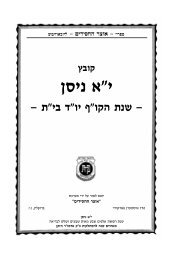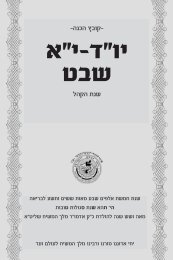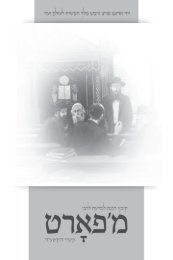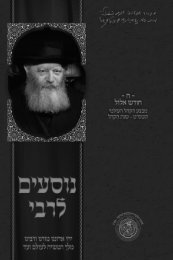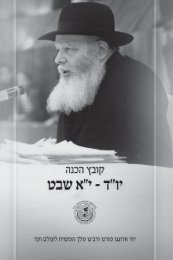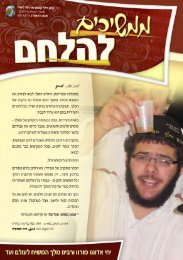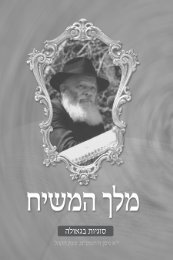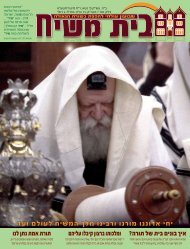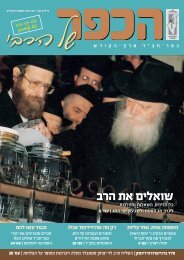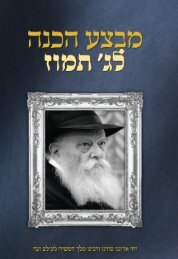You also want an ePaper? Increase the reach of your titles
YUMPU automatically turns print PDFs into web optimized ePapers that Google loves.
6If Kaddish is meant to help the living reaffirm their belief in Divine justice, then perhapsit should say, “I humbly accept upon myself the judgment of Hashem.” From the wordingof the Kaddish it seems rather that it is more a statement of continuation anddetermination; despite their loss, the living pledge that they will continue their beloved’swork in sanctifying Hashem’s name in this world.Before we begin exploring the Kaddish in more depth, let us clarify that there are variousforms of Kaddish, the primary ones being the Chatzi Kaddish or ‘Half Kaddish’ and theKaddish Shaleim, or ‘Full Kaddish’. During the actual prayers, we most frequently usethe Half Kaddish, which marks a transition within the daily prayer service. Another formis the Kaddish d’Rabbanan, the ‘Kaddish of the Sages’, which is recited after a group ofpeople has studied Torah. The version we are discussing is ‘Mourner’s Kaddish’,otherwise known as Kaddish Yasom, literally, the ‘Orphan’s Kaddish’.A HISTORICAL PERSPECTIVEThe core of the Kaddish prayer dates back to the period after the destruction of the firstTemple, and was established by the Members of the Great Assembly (Aruch HaShulchan,55:1). It was composed in Aramaic, the ancient language that all the Jews spoke duringthe period after the destruction of the Temple, so that everyone could understand themeaning of the words (Tosefos on Berachos, 3a) including non-Jews (Kol Bo, 7). Thisshows that in our times, those hearing Kaddish, and certainly those reciting it, shouldlearn the meaning of the words.The oldest known version of the Mourner’s Kaddish is found in the oldest known prayerbook, the Siddur of Rav Amram Gaon of the 9 th Century, C.E. While it is clear thatKaddish has been a universal practice for hundreds of years, it is uncertain at what pointit became common practice to recite Kaddish for a person who passed on.The idea of saying a prayer to spiritually assist someone who passed on has a source inTanach: King David prayed for his late son, Avshalom (Sh’muel II, 19:1; Sotah, 10b). Astory in the Gemara mentions the importance of specifically reciting Kaddish for thedeceased: [9]




